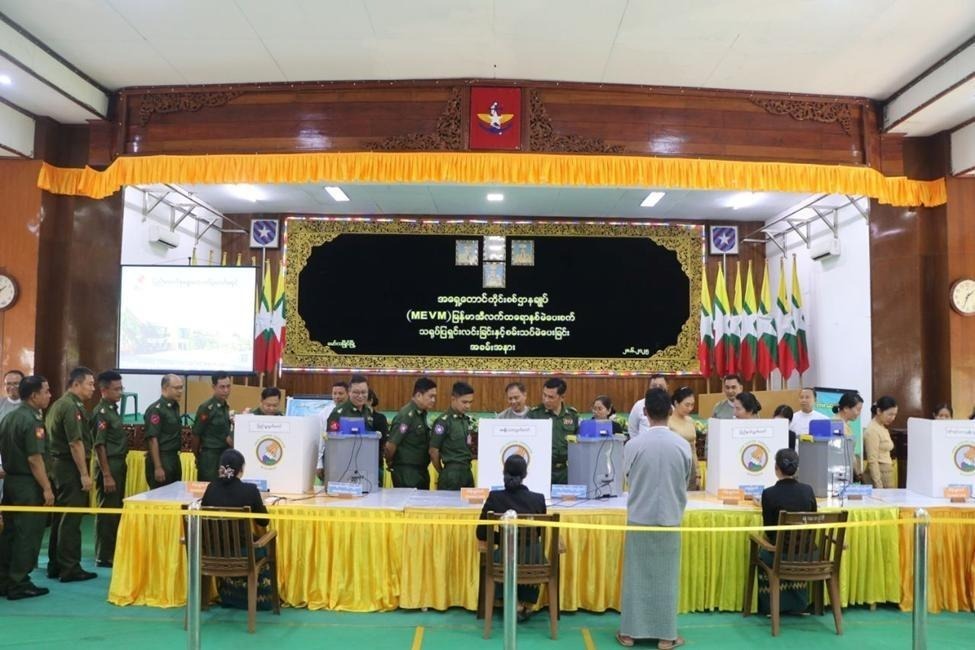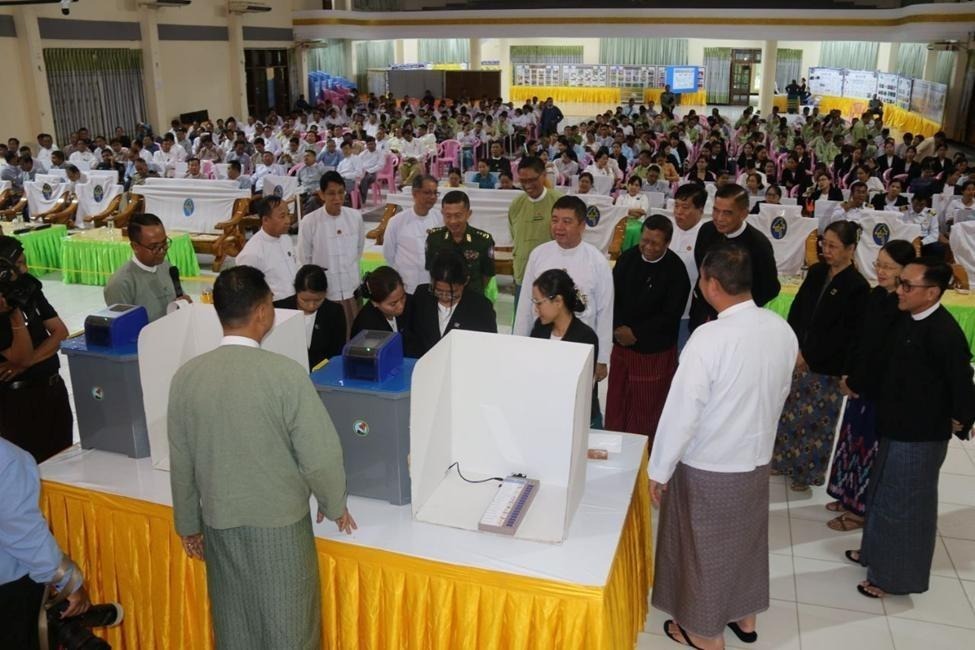Junta Enacts Harsh New Electoral Law with Death Penalty to Enforce Sham Election Plans
July 31, 2025
HURFOM: As the military junta intensifies preparations to stage a general election between December 2025 and January 2026, a new draconian law has been enacted, enabling the regime to impose the death penalty for acts of “disrupting the electoral process.” The law underscores the junta’s desperation to legitimize its rule through fear and coercion.
Signed by Senior General Min Aung Hlaing and issued on July 29, the newly passed “Law to Protect the Electoral Process from Disruption” outlines a range of penalties—from a minimum of three years in prison to life imprisonment and even the death penalty. Section 27 explicitly states that if someone dies as a result of election-related disturbances, all those involved in the act shall be sentenced to death.

“This is an extremely dangerous provision,” said a legal expert based in Mon State. “According to Section 27, anyone even loosely connected to an election-related death could face execution. There are no clear appeal mechanisms. The junta could use this as a weapon against peaceful dissenters or anyone opposing their plans.”

Section 26 of the law also imposes severe penalties on anyone who damages election commission offices, polling stations, ballot boxes, or election-related materials. Maximum penalties include life imprisonment. Similarly, threats or violence against voters, polling staff, or election commission members can result in three years to life in prison.
The law appears to be designed not only to protect the junta’s appointed non-CDM election workers but also to threaten and intimidate the general population, particularly in areas where resistance groups have declared plans to boycott or disrupt the sham election.
The stated aim of the law is to protect election processes and participants. However, critics say it is a pretext for repression. Under the new law, anyone interfering with election campaigns or candidates—by organizing, encouraging, or participating in protests, public speeches, or any form of disruption—can face three to seven years in prison and fines.
A “Central Security Monitoring Committee” will be established during the election period, composed of 14 members. The committee will be chaired by the junta’s Minister of Home Affairs, with deputy chair positions held by the Deputy Minister of Defense and Deputy Minister of Home Affairs. The national police chief will serve as secretary.
Notably, the committee has been empowered to monitor and take action against “the activities of domestic and international organizations that could pose a security threat during the election period.” The sweeping language gives the junta a legal cover to crack down on civil society groups, media, and international observers.
In Mon State, the junta has already begun laying the groundwork for the election by training local officials to operate electronic voting machines (EVMs). On July 21, such training was conducted in Ye Township—an area under martial law with strong resistance activity. The two-day training session held at Ye’s No. 1 High School reportedly included 384 participants, according to junta-run media.
A similar EVM training was launched in Kyaikmayaw Township on July 26, with 379 trainees, mostly schoolteachers, according to photos and reports. However, junta sources have not disclosed which departments the trainees are from.
Behind these preparations lies the regime’s effort to enforce its will in areas it has recently lost control over. Despite facing widespread resistance and losing significant territory to armed opposition groups, the junta is relying heavily on airstrikes and indiscriminate bombardment to regain ground—and pushing forward with plans to hold elections that few believe will be free or fair.
The National League for Democracy (NLD), which overwhelmingly won the 2020 elections, was ousted when the junta seized power on February 1, 2021. Since then, the military has detained NLD leaders including State Counsellor Daw Aung San Suu Kyi and President Win Myint, while cracking down brutally on peaceful protestors and dissenters.
In the aftermath of the coup, hundreds of thousands of people have joined armed resistance movements across the country. The military’s use of lethal force has only deepened the conflict, and the people’s determination to oppose dictatorship remains strong more than four years later.
While the junta’s control continues to shrink on the ground, the upcoming election is being marketed as a step toward stability , an illusion rejected by the majority of Myanmar’s population. Nonetheless, countries including China appear to be signaling cautious support, further complicating the crisis.



















































